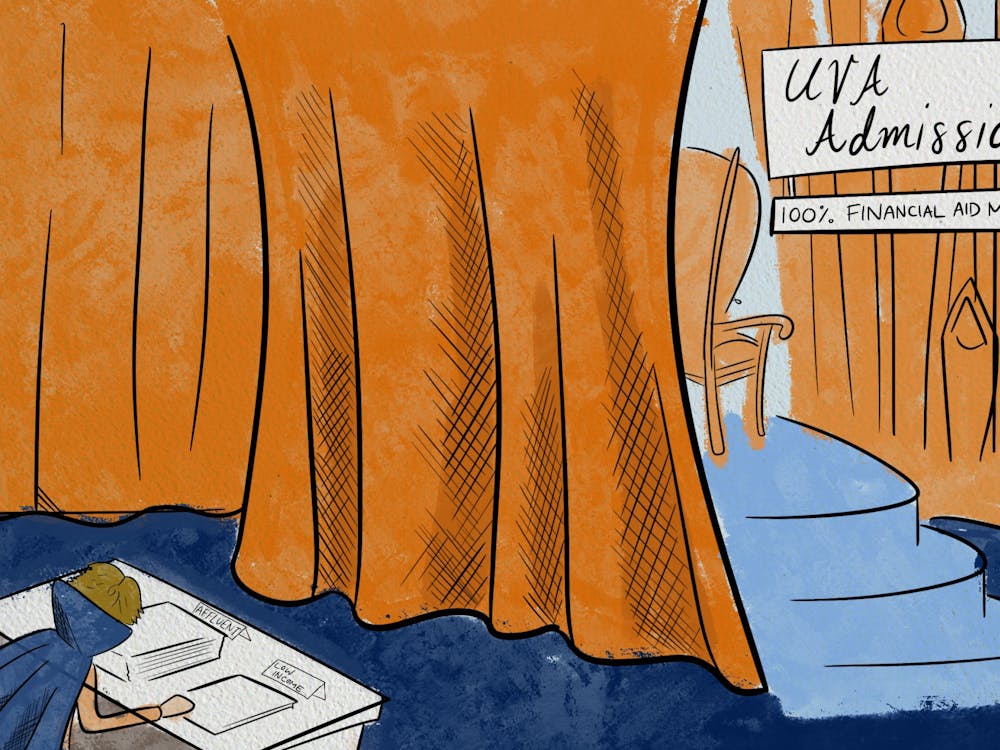The recently produced video titled "UVA's Energy Plan — Cleaner Fuel" presents an accurate yet incomplete picture about the transition from coal to natural gas for heating the University. I wholeheartedly agree with the beginning premise that the University has "to move away from coal — first and foremost." However, I reject the notion that it is incumbent upon the University to pursue natural gas as the "bridge" fuel for now while having a long-term intention to pursue alternative energy. Yes, there is a significant reduction in direct carbon emissions when switching from coal to natural gas. And yes, the operating and maintenance costs are significantly lower than coal. Sounds like a slam dunk; easy decision for all stakeholders of the University, right?
But hold on, we hear a natural pipeline needs to be built to deliver enough supply to the University to heat both Grounds and Medical Center? How many millions of dollars will that cost the University, interested parties and affected property owners along any proposed route? How long will the permitting, approval and planning process take, and how much further will the prices of alternative energy technologies decline over that same time-period? Furthermore, what will the price of natural gas do over that same time-period, given the fact that it is likely that there will be an increase in demand for the commodity by the power generation market, and the increasing likelihood that a price on carbon will be put into place as a result of the the COP21 Paris Agreement? Or how will the price of natural gas behave if or when governmental subsidies and tax breaks for the fossil fuel industry (such as federal land leases) are reduced and/or removed, in line with what the members of the G20 have pledged, but not yet implemented? One could even ask, how would the transition from coal to natural gas affect water consumption by, and local water quality around, the University?
Recent research from Oil Change International and 14 other partnering organizations builds upon earlier research about the global carbon budget (such as by Carbon Tracker Initiative) and now estimates that existing “developed” oil and gas reserves (i.e. which are those reserves "where the wells are already drilled, the pits dug, and the pipelines, processing facilities, railways and export terminals constructed") would take us beyond 1.5 degrees Celsius of additional global warming if combusted in their entirety. Furthermore, the research suggests that continuing to burn reserves at current "Business as Usual" rates, the world would likely exhaust this budget by 2025. Therefore, if many of the world's developed reserves are to be deemed "unburnable" in the next few years a la the binding of the Paris Agreement, where does that leave the University's capital "investment" in a natural gas pipeline as well as any additional carbon-intensive infrastructure? And if such developed reserves are burnt anyway, exhausting the carbon budget against scientists and research analysts’ recommendations, where does that leave the University financially to deal with a warmer climate and other related consequences, such as higher cooling costs and building resiliencies?
The time is now for the administration to complete a more sophisticated cost-benefit analysis of alternative technologies to replace coal, and possibly “leapfrog” the poorly labelled "bridge fuel" that is natural gas, as developing countries have done similarly within the telecommunications industry. Technologies like geothermal ground source heat pumps, or GSHPs, for heating and cooling might have a higher sticker price up front today, yet are likely to be sustainable in all aspects of the word, as opposed to locking into investments in carbon-intensive infrastructure that have an increased chance of becoming "stranded assets" in the intermediate term. Furthermore, this would save money and energy for cooling the University and allow it to add renewable power generation in a modular manner to offset the power loads that GSHPs consume. Granted, I am not involved with or privy to the extent that the University has considered and/or compared other alternatives to natural gas, or incorporated some of the scenarios, price sensitivity analysis and “stress testing” alluded to above. However, based on the video, I am skeptical that any such assessments have been completed.
The most recent publication of The New Climate Economy by The Global Commission on the Economy and Climate, titled "The Sustainable Infrastructure Imperative: Financing for Better Growth and Development," drives home many of the same points made above. Specifically, the world needs to avoid building infrastructure that locks in an unsustainable future for all of us. Otherwise, the University — and the entire world — both end up with a a fate turning out like many of the "New Dorms" have in recent years.
Dr. William Musser IV is a 1995 College graduate.




